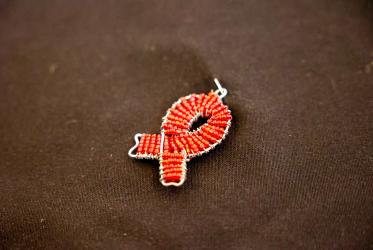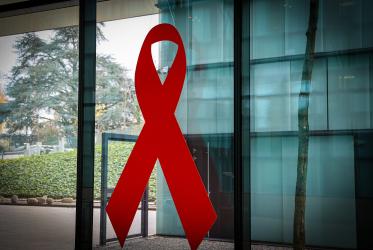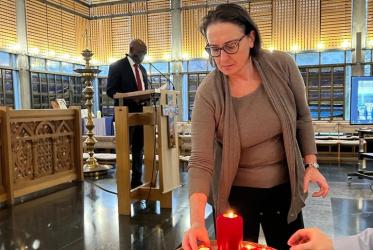Introduction: Theology in HIV & AIDS Contexts, A Series of 10 Modules
"Life-long learning" is a central philosophy to distant learning, which tends to be called Theological Education by Extension in church-related institutions. Distant learning democratizes education for it takes learning beyond the privileged school-going groups to everyone who is willing. Since it does not require learners to be residential or full-time students, distance learning cuts the cost of education. It also allows participants to study within their contexts and to utilize their work experience as an integral part of their learning.
HIV&AIDS have underlined the importance of life-long learning. From child to adult to senior citizens, HIV&AIDS have been a new and tragic phenomena that has challenged all of us to learn about it. Much more importantly, HIV&AIDS have challenged our established frameworks of thinking-relating-acting, showing how they expose all of us to the HIV&AIDS vulnerability. HIV&AIDS have thus underlined the importance of adult learning, since it entailed re-examining our accepted frameworks of thinking-elating; re-learning by seeking new ways of thinking-relating-acting, which affirms the sacrality of all members of the earth community.
The church and its members are not exempt from HIV&AIDS and the call to learn, re-learn and reimagine new ways of being church and the earth community. As church, we were ignorant and we did not refrain from fear, silence, indifference, stigma and discrimination. The earliest response indicated that there was much need to learn about facts of HIV&AIDS and to construct theological perspectives that assist the body of Christ to be moved with compassion in the struggle against HIV&AIDS and its devastation against life. This series of ten modules is produced as a resource for the empowerment of the body of Christ - to nurture the church as it seeks to become an HIV&AIDS competent church. The series consists of a distant learning curriculum and ten modules on the following titles:
HIV and AIDS Curriculum
for Theological Education by Extension Institutions (TEE) in Africa,
accompanied by ten HIV and AIDS-sensitive Education Modules
Module 1: Gender, Religion and HIV and AIDS Prevention
by Isabel Apawo Phiri
Module 2: Human Sexuality and HIV and AIDS
by Peter Ngure
Module 3: Studying the Hebrew Bible in HIV and AIDS Contexts
by Sarojini Nadar
Module 4: Reading the New Testament in the HIV and AIDS Contexts
by Musa W. Dube
Module 5: African Indigenous Religions in the HIV and AIDS Contexts
by Ezra Chitando
Module 6: A Theology of Life in the HIV and AIDS Contexts
by Moiseraela P. Dibeela
Module 7: A Theology of Compassion in the HIV and AIDS Era
by Musa W. Dube
Module 8: A Theology of Healing in the HIV and AIDS Era
by Nontando M. Hadebe
Moduel 9: HIV and AIDS Pastoral Care and Counselling
by Paul Lekholokoe Leshota
Module 10: Preaching and Liturgy in the HIV and AIDS Contexts
by Paul Lekholokoe Leshota and Nontando M. Hadebe
The series was produced through the participation and request of Theological Educational Extension institutions of Africa. We hope that the church will use them through distant learning institutions, through bible studies and through residential theological institutions. We believe that the modules are a major resource that should empower theological institutions to establish Diplomas and degrees in HIV&AIDS theological studies. Above all, it is our hope that the modules will significantly contribute towards building an HIV&AIDS competent church, worldwide.
Prof. Musa W. Dube
University of Botswana
Series Editor
Published by the World Council of Churches
Ecumenical HIV and AIDS Initiative in Africa
150 route de Ferney
P.O. Box 2100
1211 Geneva 2, Switzerland
Tel: +41 22 791 6321; Fax: +41 22 791 6201





